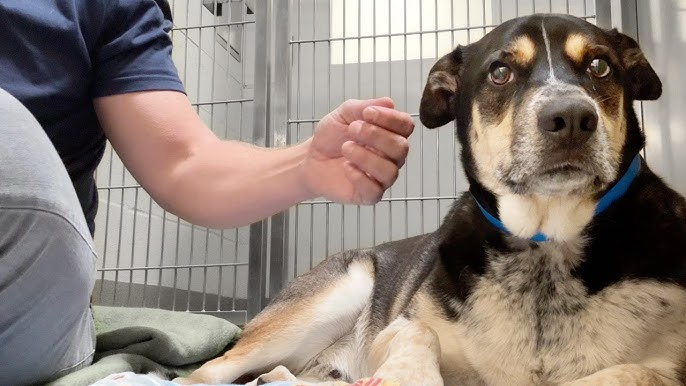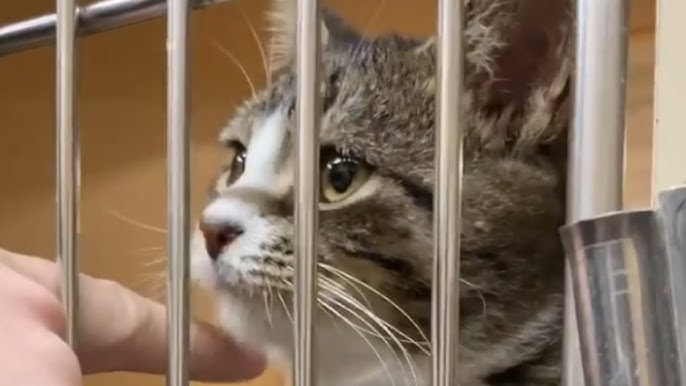1. Financial Hardship

iStock
One of the most common reasons pets are surrendered is the financial strain of caring for them. Veterinary bills, food, grooming, and unexpected medical emergencies can add up quickly, especially during times of economic difficulty. Many people adopt pets with the best intentions, only to find themselves overwhelmed when costs rise or their income decreases. Unfortunately, pet ownership isn’t always financially sustainable, leading some to make the difficult decision of surrendering their beloved companion to ensure they receive proper care elsewhere.
2. Moving to a New Home

YouTube
Relocating is another major reason pets end up in shelters. Whether it’s moving to a different city or country, not all housing options are pet-friendly. Landlords may impose high pet fees, restrictive rules, or outright bans on certain animals or breeds. For military families or those moving for work, long travel distances and temporary living arrangements can make it impossible to bring a pet along. While some people do everything they can to keep their pet, others feel they have no choice but to surrender them.
3. Behavioral Issues

YouTube
Pets can develop behavioral problems that are challenging to manage, especially if owners don’t have the time or resources to address them. Dogs that bark excessively, cats that refuse to use the litter box, or animals that show aggression can make life stressful for their families. Often, these behaviors stem from a lack of training, socialization, or underlying health issues. While many of these problems can be resolved with patience and professional help, not all owners are equipped to handle the effort required, leading them to surrender their pet.
4. Allergies

YouTube
Discovering an allergy to a pet can be devastating, especially if it’s a severe reaction. While some people try to manage their symptoms with medication or adjust their cleaning routines, others find the health risks too great. This is particularly true when it comes to children or other family members whose allergies worsen over time. Despite the emotional bond, allergies often leave families feeling they have no alternative but to surrender their furry friend.
5. Lack of Time

YouTube
Life gets busy, and sometimes people find they can no longer provide the attention and care their pet needs. Pets, especially those that are active or highly social, require time for feeding, exercise, training, and companionship. Owners juggling demanding jobs, family responsibilities, or health issues may feel guilty about neglecting their pet and decide surrendering them is the kindest option. It’s not an easy choice, but for some, it feels like the only way to ensure their pet receives the care they deserve.
6. Unexpected Life Changes

YouTube
Life can throw unexpected curveballs, like the death of a family member, divorce, or major health issues. These events can leave people unable to care for their pets due to emotional, physical, or financial strain. For example, someone who becomes bedridden or moves into assisted living may no longer be able to keep a pet. In these situations, surrendering the animal to a shelter is often seen as the best way to ensure their future well-being.
7. Housing Restrictions

YouTube
Breed restrictions, weight limits, and outright bans on pets are common in rental agreements and homeowners’ associations. Even for pet owners who meticulously research pet-friendly housing, circumstances can change unexpectedly. A new job or landlord’s policy might force them to give up their pet. Breed-specific legislation, such as bans on pit bulls, adds another layer of complexity for owners of certain dog breeds. When housing options run out, many people feel backed into a corner.
8. Pet Health Issues

YouTube
Caring for a pet with chronic health problems or disabilities can be incredibly demanding. Treatments, medications, and frequent vet visits can drain time, energy, and finances. Some owners feel unequipped to provide the level of care their pet needs and worry their beloved companion is suffering due to their limitations. In these cases, surrendering the pet to a shelter or rescue group specializing in their care is often done with the hope of giving them a better chance at a comfortable life.
9. Too Many Pets

YouTube
Sometimes, people take in more animals than they can realistically care for, whether it’s from a lack of planning or a genuine desire to help stray or abandoned animals. Over time, they may find themselves overwhelmed by the costs, responsibilities, and challenges of managing multiple pets. Surrendering one or more animals becomes a necessity to ensure all the pets receive adequate care and attention.
10. Unrealistic Expectations

YouTube
Many pets are surrendered because they don’t meet their owners’ expectations. A dog that grows larger than anticipated, a cat that isn’t as affectionate as hoped, or a high-energy pet that demands constant attention can leave owners feeling frustrated or unprepared. Unfortunately, some people adopt pets without fully understanding their needs or temperament, leading to mismatches that result in surrender.
11. Lack of Pet Training

YouTube
Untrained pets can create chaos in a household, from chewing on furniture to jumping on guests. For first-time pet owners, the time and effort required for training can come as a surprise. Without proper guidance, pets may develop habits that are difficult to correct, leading owners to feel they’re not equipped to handle the responsibility. Sadly, this often leads to surrender, even when the pet’s behavior could have been managed with training.
12. Compatibility Issues

YouTube
Pets, like people, have unique personalities that don’t always align with their owners’ lifestyles. A high-energy dog might struggle in a quiet household, while a shy cat might be overwhelmed in a home with small children. Sometimes, despite the best intentions, the match simply isn’t right. Compatibility issues can also arise when introducing a pet to other animals, leading to tension or aggression that disrupts the household dynamic. In these cases, surrendering the pet may feel like the most compassionate choice for everyone involved.


